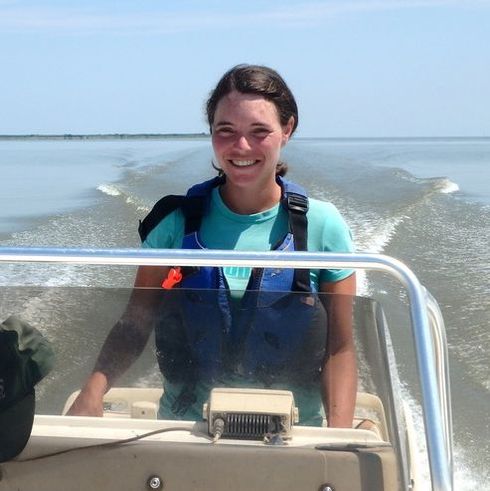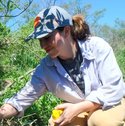After months of sitting in the office staring at dots on a screen, it's nice to get out into the field again with actual pelicans. We've spent the first few weeks of the new season in Florida and Louisiana putting out replacement transmitters and checking up on some of the pelicans we captured last year. Beginning next week, we'll be in Texas for the rest of the summer, tracking productivity and chick diet at four colonies along the coast. However many seasons I spend working on colonies, nothing beats the feeling of being surrounded by seabirds, entering their world for a few minutes or a few months.
Being a smaller crew (only two of us this season) has taken some adjustment, but now that we're 15 pelicans in we've got it pretty well figured out. It's amazing how quickly the mechanical skills of fieldwork come back to you.
Being a smaller crew (only two of us this season) has taken some adjustment, but now that we're 15 pelicans in we've got it pretty well figured out. It's amazing how quickly the mechanical skills of fieldwork come back to you.
A depressing element of this year's work so far has been the very visible effects of derelict fishing gear. On Audubon Island (near Panama City, FL) we found at least 8 seabird carcasses-- mainly pelicans, but also a Double-Crested Cormorant and a Laughing Gull-- that appeared to have died following entanglement in fishing line, and we also removed a metal hook from the wing of a live pelican who was unable to fly. Hopefully the injury will heal, but it's sobering to see such a high level of mortality and injury on a relatively small colony. Adult survival rates in pelicans are not known precisely, but in most seabirds adult survival is a critical component of long-term population persistence.
Other than that, however, the colonies appear to be thriving and we're looking forward to the next few months. Fingers crossed for another successful season...
Other than that, however, the colonies appear to be thriving and we're looking forward to the next few months. Fingers crossed for another successful season...


 RSS Feed
RSS Feed
